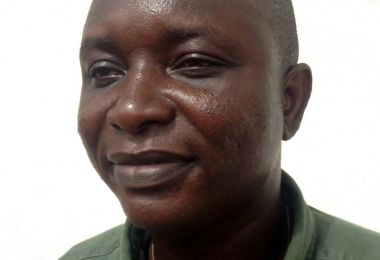Top Ebola doctor killed by the virus in Sierra Leone

A leading physician in the fight to spread the deadly Ebola virus has died from the disease.
Dr. Sheik Umar Khan died less than a week after testing positive for the virus. He was being treated at an isolation ward in Kailahun, Sierra Leone.
Dr. Khan had treated over 100 Ebola-stricken patients in West Africa following a severe outbreak of the virus this spring.
The outbreak began in southern Guinea in February, and quickly spread to Liberia and Sierra Leone. Over 660 people have been killed by the virus, and there is no cure. The mortality rate of the current outbreak is 60 percent.
It was reported that Dr. Khan was expected to survive the infection, and Sierra Leone President Ernest Bai Koroma was due to visit the Medecins Sans Frontieres-run clinic where he was receiving treatment. Khan passed away before President Koroma arrived.
Sierra Leone Chief Medical Officer Brima Kargbo described the devastating loss to the medical community and to patients fighting the highly-contagious virus.
"It is a big and irreparable loss to Sierra Leone as he was the only specialist the country had in viral hemorrhagic fevers," Kargbo told Reuters.
The announcement of Khan's death follows news that an American physician working in Liberia tested positive for Ebola virus on Sunday.
Dr. Kent Brantly was treating Ebola patients in Monrovia through Christian humanitarian organization Samaritan's Purse. He is currently being treated in an area hospital.
Brantly, 33, recognized his symptoms and quarantined himself in the Eternal Love Willing Africa (ELWA) Hospital. According to the Center for Disease Control and Prevention, Ebola virus disease, or Ebola hemorrhagic fever, typically causes fever, diarrhea, vomiting, headache, joint pain, and other symptoms.
The disease is transmitted by coming into contact with the bodily fluid of an infected person, or touching objects such as needles that have come into contact with infected bodily fluid. The CDC recommends proper sterilization of medical equipment, and wearing protective clothing to decrease the chances of infection.
Samaritan's Purse spokesperson Melissa Strickland said Dr. Brantly followed all safety precautions.
"It's too early to try to explain it. We will have an intensive and thorough investigation," she told Reuters.











